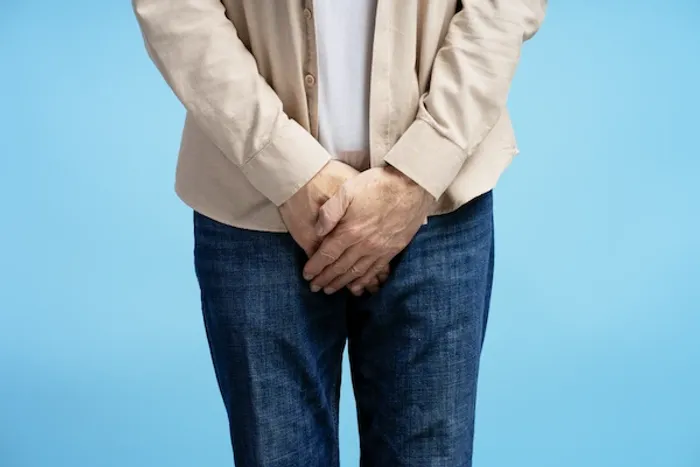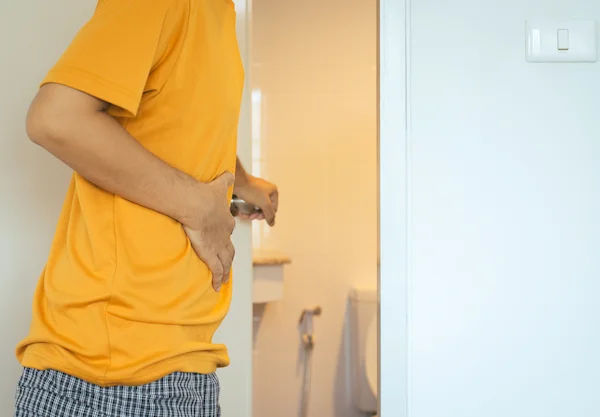Effective Home Remedies to Control Frequent Urination Naturally
Learn safe, science-backed frequent urination remedies for better urinary health and bladder care. Tips, when to see a doctor, and FAQs.

Written by Dr. J T Hema Pratima
Reviewed by Dr. Mohammed Kamran MBBS, FIDM
Last updated on 13th Jan, 2026

Introduction: Why Addressing Frequent Urination Matters
Needing to pee more often than usual can disrupt sleep, work, and daily life. It can also signal something going on in your body that deserves attention. The good news: many people find relief with simple, safe changes at home. In this guide, you’ll learn science-backed frequent urination remedies that support urinary health and gentle bladder care, plus clear advice on when to see a healthcare professional.
Important note: Frequent urination can have many causes—including urinary tract infection (UTI), overactive bladder (OAB), diabetes, pregnancy, certain medicines (like diuretics), an enlarged prostate, pelvic floor weakness, or anxiety. Home strategies can help with symptoms, but new, severe, or persistent changes should be evaluated by a clinician.
Consult a Top General Practitioner for Personalised Advice
What’s “Normal” and What’s Not in Urinary Health
Let us see the normal and what is not in urinary health
- Most adults urinate 4–8 times during the day, and possibly once at night. Drinking more fluids, caffeine, or alcohol can increase that number.
- Frequent urination becomes a concern when it’s new, worsening, happens more than about 8 times a day, wakes you up repeatedly at night (nocturia), or comes with other symptoms like burning, blood in urine, fever, back pain, or incontinence.
When to contact a clinician promptly?
Seek medical care if you have:
- Painful urination, fever, chills, back or side pain
- Blood in urine or cloudy, foul-smelling urine
- Sudden, severe urinary frequency, especially with thirst and weight loss (possible high blood sugar)
- Urinary leakage, trouble starting flow, weak stream, or feeling you cannot empty your bladder
- New nighttime urination that disturbs sleep most nights
- Symptoms during pregnancy, in children, after pelvic or prostate surgery, or with neurological conditions
Practical Frequent Urination Remedies You Can Try at Home
These strategies are safe for most people and have support from major medical organisations. Start with one or two changes, then add more as needed.
1) Balance your fluids the smart way
- Aim for steady hydration throughout the day. A practical guide is to drink enough water to keep your urine pale yellow.
- Limit fluids 2–3 hours before bedtime to reduce nighttime trips.
- If you take diuretics (water pills), ask your clinician if you can take them earlier in the day.
- Choose water most often. Excess soda, energy drinks, and “detox” teas can irritate the bladder or act as diuretics.
2) Identify and reduce bladder irritants
Some drinks and foods can worsen urgency or frequency in sensitive people:
- Caffeine (coffee, tea, energy drinks), alcohol
- Carbonated beverages
- Artificial sweeteners
- Very spicy foods
- Citrus juices and highly acidic foods (for some people)
Try a 2-week trial limiting likely triggers, then reintroduce one at a time to see what truly affects you. Keep a simple bladder diary, noting what you drink and your bathroom trips.
3) Try bladder training (timed voiding)
Bladder training helps you gradually lengthen the time between trips to the bathroom:
- Start by noting your current average interval (for example, every 60 minutes).
- Set a schedule to use the bathroom a little less often (for example, every 75 minutes).
- When you feel the urge earlier, use urge-control techniques (below) and wait a few minutes if comfortable.
- Increase your interval by 10–15 minutes every few days.
- With patience, many people improve urgency and frequency over weeks to months.
4) Use urge-control techniques
When a sudden urge hits:
- Pause, stay still, and take slow diaphragmatic breaths.
- Do 5–10 quick pelvic floor squeezes (“quick flicks”) to help the bladder calm down.
- Distract yourself for 1–2 minutes, then walk to the bathroom at a normal pace.
- These methods help retrain the bladder and reduce panic around urges.
5) Strengthen your pelvic floor with Kegels
Stronger pelvic floor muscles support the bladder and urethra:
- To find the right muscles, imagine stopping gas from passing. Those are your pelvic floor muscles.
- Technique: Gently squeeze and lift those muscles for 3–5 seconds, then relax for the same amount. Do 10 reps, 3 times a day.
- Add quick squeezes (1 second on, 1 second off) for urge control.
- Avoid holding your breath or tightening your abdomen, thighs, or buttocks.
Benefits often appear after several weeks of steady practice. Consider pelvic floor physical therapy for guided help—especially after childbirth, pelvic surgery, or with long-standing symptoms.
6) Support bowel regularity
Constipation puts extra pressure on the bladder and can worsen frequency and urgency:
- Eat fibre-rich foods (vegetables, fruits, whole grains, beans, nuts)
- Hydrate consistently
- Stay active daily (even short walks help)
- Don’t ignore the urge to have a bowel movement
7) Maintain a healthy weight and stay active
Excess abdominal pressure can strain bladder support. Gentle weight loss (if you are overweight) and regular physical activity can reduce urinary symptoms and support overall health.
8) Manage nighttime urination (nocturia)
It can be managed by:
- Limit evening fluids and avoid caffeine and alcohol after mid-afternoon.
- Elevate your legs for 1–2 hours in the late afternoon or wear compression socks (if appropriate), which can shift fluid earlier in the day so you urinate before bedtime instead of overnight.
- Urinate right before bed. Keep your bedroom dark and comfortable to fall back asleep faster if you wake.
9) Review medicines and health conditions
It includes:
- Some medicines increase urination (diuretics) or irritate the bladder. Never stop a prescription on your own; ask your clinician about timing or alternatives.
- High blood sugar can cause thirst and frequent urination. If you’re very thirsty, urinating a lot, and more tired than usual, get checked for diabetes.
- Men with urinary symptoms like a weak stream or incomplete emptying should discuss prostate evaluation.
10) Avoid myths that can make things worse
The myths include:
- Do not severely restrict water to “fix” frequency. Dehydration can irritate the bladder and raise UTI risk.
- Be cautious with herbal diuretics and “detox” teas—they may worsen urgency or interact with medications.
- Cranberry products may help prevent recurrent UTIs in some people, but they do not treat active infections and are not a cure for an overactive bladder.
Gentle Bladder Care Habits for Long-Term Relief
It includes:
- Don’t rush: Give yourself unhurried bathroom time to fully empty your bladder.
- Double voiding: If you often feel you didn’t empty, wait a minute, then try to urinate again.
- Keep a urine diary: Track fluids, foods, stress, urges, and bathroom trips. Patterns help you pinpoint triggers and show progress.
- Stress care: Anxiety can worsen urgency. Simple breathing, stretching, walking, or a brief mindfulness practice can help.
- Seek support: Pelvic floor physical therapists and continence nurses teach targeted exercises and urge-suppression skills.
When Home Care Is Not Enough?
Home strategies are often helpful, but persistent symptoms deserve a medical check. Your clinician may test your urine, review medicines, and screen for UTIs, diabetes, or prostate issues. If an overactive bladder is diagnosed, treatments can include behavioural therapy first, then medications or other options if needed.
Quick Start Plan (1–2 Weeks)
Day 1:
- Begin a bladder diary.
- Switch to water and reduce caffeine and alcohol.
Days 2–7:
- Set a bathroom schedule based on your current interval, then extend by 10–15 minutes as tolerated.
- Start Kegels: 10 reps, 3 times per day, plus a set of quick squeezes when an urge hits.
- Limit evening fluids after dinner; urinate before bed.
Days 8–14:
Reassess your diary. Keep what helps. Reintroduce one food/drink at a time to identify irritants.
Add daily walks and a regular fibre routine to prevent constipation.
If symptoms are unchanged or worse, schedule an appointment.
Conclusion
Frequent urination can disrupt daily life, but simple, evidence-based home strategies often bring meaningful relief. Balancing fluids, avoiding bladder irritants, practising bladder training, strengthening the pelvic floor, and supporting bowel health are all practical steps you can take. Lifestyle habits like regular activity, weight management, and mindful stress care further support urinary health. While these remedies help many people, persistent, severe, or unexplained symptoms always warrant medical evaluation. By combining home strategies with professional guidance when needed, you can protect your bladder, reduce urgency, and improve overall quality of life.
Consult a Top General Practitioner for Personalised Advice
Consult a Top General Practitioner for Personalised Advice

Dr Suseela
General Physician
5 Years • MBBS
Bengaluru
Apollo Medical Center, Marathahalli, Bengaluru

Dr. Mainak Baksi
General Practitioner
13 Years • MBBS , MD (MPH)
Howrah
Mainak Baksi Clinic, Howrah
(50+ Patients)

Dr. Rajib Ghose
General Physician/ Internal Medicine Specialist
25 Years • MBBS
East Midnapore
VIVEKANANDA SEBA SADAN, East Midnapore

Dr. Thorana Prakash M
General Physician
2 Years • MBBS
Bengaluru
PRESTIGE SHANTHINIKETAN - SOCIETY CLINIC, Bengaluru

Dr. Vivek D
General Physician
4 Years • MBBS
Bengaluru
PRESTIGE SHANTHINIKETAN - SOCIETY CLINIC, Bengaluru
Consult a Top General Practitioner for Personalised Advice

Dr Suseela
General Physician
5 Years • MBBS
Bengaluru
Apollo Medical Center, Marathahalli, Bengaluru

Dr. Mainak Baksi
General Practitioner
13 Years • MBBS , MD (MPH)
Howrah
Mainak Baksi Clinic, Howrah
(50+ Patients)

Dr. Rajib Ghose
General Physician/ Internal Medicine Specialist
25 Years • MBBS
East Midnapore
VIVEKANANDA SEBA SADAN, East Midnapore

Dr. Thorana Prakash M
General Physician
2 Years • MBBS
Bengaluru
PRESTIGE SHANTHINIKETAN - SOCIETY CLINIC, Bengaluru

Dr. Vivek D
General Physician
4 Years • MBBS
Bengaluru
PRESTIGE SHANTHINIKETAN - SOCIETY CLINIC, Bengaluru
More articles from Frequent Urination
Frequently Asked Questions
How many times a day is normal to pee?
Most people urinate 4–8 times during the day. Going more often can be normal if you drink lots of fluids, especially caffeine or alcohol. If you’re going more than about 8 times daily or waking often at night, consider the tips above and check in with a clinician if it persists.
Can cranberry juice help with frequent urination?
Cranberry products may lower the chance of recurrent UTIs for some people, but they do not treat an active infection and are not a solution for overactive bladder or other causes of frequency. If you suspect a UTI (burning, urgency, fever, blood in urine), seek medical care.
What exercises help the most?
Pelvic floor exercises (Kegels) and bladder training are key. Kegels strengthen the muscles that support the bladder and can reduce urgency and leakage. Bladder training gradually lengthens the time between bathroom trips. Many people see improvement after several weeks of consistent practice.
Is it bad to hold my urine?
Occasionally delaying a bathroom trip during bladder training is fine and part of therapy. But regularly holding urine for very long periods is not advised and may increase discomfort or UTI risk. Use urge-suppression techniques and a planned schedule rather than long-term holding.
When should I see a doctor about frequent urination?
Get care if you have pain, fever, blood in urine, back or side pain, new severe frequency, incontinence, a weak stream or difficulty emptying, diabetes symptoms (extreme thirst, fatigue), symptoms in pregnancy or childhood, or if your symptoms persist despite home care.
